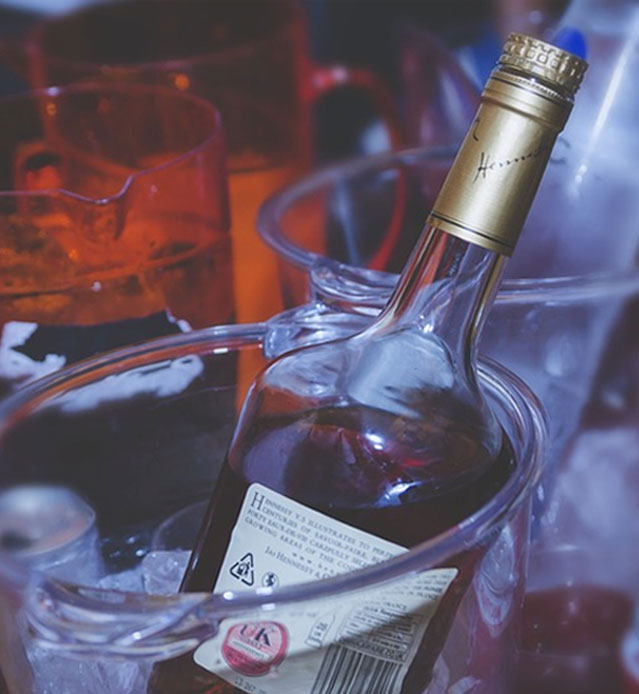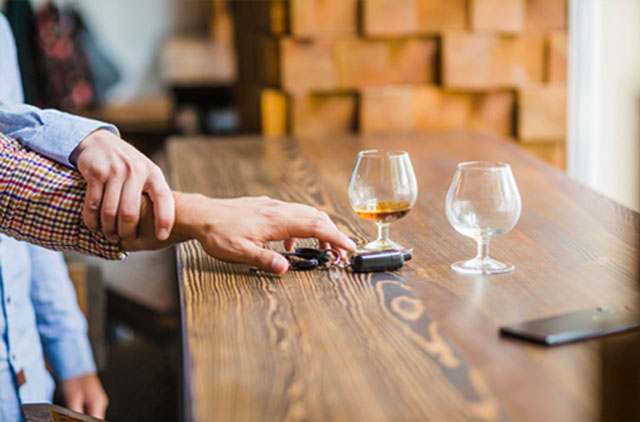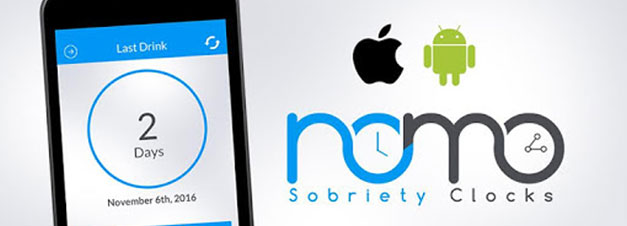
It is common knowledge that Alcoholics Anonymous is an organisation that helps people recover from alcoholism. Their most outstanding quality is the fact that they preach complete abstinence from alcohol. We will shed more light on total abstinence and it’s implication.
The concept of abstinence used in the addictions field to describe the process of abstaining—meaning avoiding, or not engaging in—certain potentially addictive substances or behaviors. When a person does not engage in the addictive behavior at all, either indefinitely or for a short period of time, that person is said to be abstinent or abstaining, for example, “He was abstinent from alcohol for 6 months.”
The term abstinence could be used as a goal, for example, “She intends to abstain from sexual activity until she is married,” or a philosophy, for example, ” Alcoholics Anonymous is an abstinence-based approach to recovery from alcoholism.”
The organization AA was the first program focused specifically on treating addiction, and complete abstinence from alcohol was the cornerstone of the approach. And so as such, abstinence has a long history of being an entrenched concept required for recovery. The people that developed the AA 12 step program genuinely believed that alcoholism was a disease people were born with, not that it develops in response to exposure to alcohol, and therefore, that any drinking was a complete failure on the part of the “alcoholic.”
From all this we can say that abstinence is a rigid, all-or-nothing approach, so much so, that it is considered by some factions of the addictions field to be unworkable for many people who want to overcome addictive behavior.
There are some health care professionals that believe that abstinence is unnecessary, and some people are able to go from drinking excessively to drinking in moderation. The above view, has set up a dichotomy between approaches to treatment that require abstinence, and those that do not. Health care providers , and people who seek help with addictive behaviors, are often pressured to take sides, and state whether they believe in abstinence or harm reduction as if the approaches are mutually exclusive.
In Alcoholics Anonymous, the 12-step programs require abstinence, whereas motivational interviewing does not. According to the AA, abstinence from alcohol involves completely avoiding intake of any alcohol and contrasts with controlled drinking that might help an alcohol addict to become a moderate and non-problematic drinker. And so, in order for someone to overcome a problem with drinking too much, they have to go through alcohol withdrawal, which can range from unpleasant to life-threatening. Many opt to undertake this more difficult part of the process in a professional clinic – click here for the Abbeycare Bristol centre. But in comparison, a harm reduction approach allows people to gradually reduce the number of drinks they consume each day, without requiring the withdrawal syndrome.

As with drug addiction, methadone maintenance treatment may or may not require abstinence from heroin or other opiate drugs, but as an opiate drug itself, people on methadone are often perceived not to be abstinent, and may, therefore find themselves excluded from abstinence-based programs. The above problem can be very frustrating for people who have tried multiple times to withdraw from heroin but have relapsed, and these are the people most likely to be stabilized on methadone prior to going into psychological treatment.
There are some experts who have a more balanced and evidence-informed approach to treatment. They say that harm reduction approaches may be most effective for many people, while complete abstinence may be the best solution for others.
Individuals who have had their health has been severely compromised through alcohol and drug use, abstinence may be advisable, as further exposure to alcohol or drugs could be life-threatening, or abstinence may half progression of a condition that may become life-threatening if the person consumes alcohol or drugs. It is under these circumstances, that the decision to become abstinent is individual and evidence-based, not a dogmatic one-size-fits-all philosophy.
As the recognition of behavioral addictions increases, abstinence-based approaches are increasingly seen as unworkable.
However, those who are proponents if harmful reduction still acknowledge that abstinence has its place for certain people who are prone to relapse, for whom any addictive behavior would be harmful, or for certain stages in the process of recovery.
The decision to choose between harm reduction and abstinence boils down to an individual’s needs. For example, for an individual who has been diagnosed as an alcoholic or a heavy drinker (more than 5 drinks on the same occasion on each of five or more days in a 30-day period), harm reduction may not be a realistic option, as It relies on a person who previously had difficulty controlling his or her drinking to suddenly develop self-control. As many addiction therapists would attest, this is an unrealistic expectation.
Most of the time, addicts generally require more than just the standard 30-day detox suggested by Moderation Management and other harm reduction organizations. Also, they need a long-term alcohol and drug rehab that includes counseling and other therapeutic services. A vast majority of the medical community classifies addiction as a chronic brain disease, as such, abstinence treatment is the only way to ensure that the disease remains in remission
On the other hand, drinkers who self-identify as needing to curb their drinking may find harm reduction to be a better strategy, as it is less intensive, less expensive, less invasive and does not close the door on socially drinking. Although this method, however, require a level of self-control and accountability that is uncommon in problem drinkers. The problem is how many drinkers can even recall how many alcoholic beverages they had the night before? So then, how possible is it for a drinker to pause in between drinks and mark down in a notebook when he or she has consumed a beverage?
Those who are seeking to find substance abuse treatment for a loved one must honestly assess the enormity of the problem. When a person is abusing alcohol, abstinence-only treatment may be advisable. Akso, when an individual has caused significant damage to his or her life or the lives of others, abstinence-only treatment is the most advisable course of action. But one can say that, an individual who is just a “problem drinker” who has not suffered major consequences as a result of drinking, may be successful with a harm reduction approach.
In light of all this, most addictive behaviors, are so harmful that controlled behavior is not possible or advisable under any circumstances, and complete abstinence is necessary.
Are you an alcohloic and you want to quit drinking but don’t know the ways? It’s now possible to do so with the help of your smartphone! If you are interested and want to cope with alcohol dependence, there are more and more mobile applications.
This software is a motivational app that allows monitoring sobriety. By using this app, you can track the time (in minutes, seconds or hours) that you were sober, as well as see the total number of days you spent without alcohol.
With this app, you’ll get:

Alerts when you reach milestones in your sobriety.

An inbuilt calculator that will help to keep track how much money you have saved. All you need to do is enter the sum you spent daily on alcohol and the calc will do its work

To share your experiences, so you can share your story with other users and inspire them

Access to support groups and rehabilitation clinics near you.
Coach.me is a motivating tool designed to achieve your goals. By using this app, you specify the goal, and after it is achieved, get praise from the application. In your situation, the goal may be “Do not drink today.” Downloading the application on Android or iPhone is completely free. When using Coach.me, you can choose one of the levels offered: self-coaching (here you will track your progress), community coaching (for asking questions), private coaching (you can hire a coach for additional paying). This app will help you to set goals and help you achieve them, while constantly motivating you. Coach.me tracks your progress and provides rewards and there is always someone available from the community to answer your questions and support you.

The software Sober Time is a tool for tracking the time that you were sober. The app helps to give up such bad habits as smoking, drugs or alcohol addiction. Sober Time has a beautiful design and a powerful interface and it is so simple to be motivated!

Sober Time app offers:
This is one app that can be very helpful in the struggle with alcoholism as it can be used by both Android and iPhone users. Nomo can assist in tracking money and time saved. With this app, you can be able to share your success with others via social networks.
The main features of the app are as follows:
The main features of the app are as follows:

Sober Grid is an app created by a community of former alcoholics or people seeking a sober lifestyle. Lots of individuals use this app for support, others are for help. Its user interface allows you to communicate anonymously, in chat rooms, read the news, even organize meetings in reality in order to overcome the burning desire to drink. Sober Grid has a news feed that allows you to share your thoughts, experience of struggle and success related to sobriety state.

The main features of the Sober Grid application:
With this app on your phone, you will get support from other members or can help those users who really need it.
Sober Grid is an app created by a community of former alcoholics or people seeking a sober lifestyle. Lots of individuals use this app for support, others are for help. Its user interface allows you to communicate anonymously, in chat rooms, read the news, even organize meetings in reality in order to overcome the burning desire to drink. Sober Grid has a news feed that allows you to share your thoughts, experience of struggle and success related to sobriety state.
The main features of the this app are:

Being able to track how much money was spent on the drinks

Being able to count the number of calories in the alcohol you drink

Statistics viewing (week, month, year)

Comparison of the results with the previous periods
This software can be called a sobriety counter as it can calculate the saved money and sober days.
When you use the app, you will understand how helpful it is.
The main features are:

Rewards for sobriety

Motivational messages with
alerts every day

The ability to share
your messages, comments in a
community forum.
Sobriety Counter is app that offers helpful service that helps to quit an addiction. Sobriety Counter app is simple in use, all you need to do is enter a bad habit you have and the day when you want give it up, and the Sobriety Counter app will serve in your struggle.
The main features of the Sober Grid application:

After downloading the app, you can enter your reasons for giving up drinking and they will serve you as additional motivation.
There we go, these apps will prove to be completely useful in the fight against alcoholism. But they shouldn’t be used alone, you should find yourself a good community to join. Being with others like you, who are fighting the same battles will give you the motivation to continue fighting. So best of luck

AA seems mysterious to some people. There is a lot of curiosity and an equal amount of myth. Some believe it is a cult, some think it is an organized religion, some believe it doesn’t work at all, and none of these things are true. Andbas such, AA has recently received a wave of criticisms which, in different ways, target what have been perceived to be its religious components. There are people that have argued that AA lacks scientific credibility and offers a treatment for alcoholism that is thoroughly “irrational.” The above claim is that evidence-based research has proven that AA “doesn’t work,” or at least, isn’t as effective as other treatments. There are also those within the AA community who have grown fed up with what they view as its residual protestant Christian undertones. Recently there have been a number of court cases in Canada have been brought against AA charging the organization with discrimination on the basis of excluding secular or atheist groups in a variety of ways.
It has been suggested that “spirituality” is generally used to describe a liberal religiosity, which stresses individual autonomy and choice, while “religion” is often used to describe a more conservative religiosity, which stresses conformity to a collective norm. And so, if one is a liberal, “religion” has a negative connotation, while conservatives claim it with pride.
The truth is, YES, the word “God” is used in the 12 steps and in AA approved literature. YES, people make reference to God when they speak and share in meetings. And, YES, some members of Alcoholics Anonymous are church-going, God-believing people. However, there is no requirement to be Christian, Catholic, Buddhist, or anything else.
The label of “God” has an understood implication of a higher being. The same way that a friend may ask for a “Kleenex” when it may actually be Puffs. Or they way a friend will ask for “Chapstick” when it could be Blistex, Carmex, or Burt’s Bees. Everyone says “Chapstick”, and everyone knows what is implied.
Alcoholics Anonymous is not a religious organization. It is a group of people who gather in a room, to share their experience, strength, and hope. To help one another to get sober, stay sober, and live a healthy life. It is a group based entirely on unity.
It seems as though people will use this religious distaste as an excuse to condemn AA. The truth is that people everywhere everyday have differing religious beliefs. Maybe the most respected, successful business person has a different belief, does that mean that person can not offer valuable career advice? No. Should that person be discounted in their experience and personal knowledge because they don’t go to church on Sunday? No.
The fact is, the only requirement for AA membership is a desire to stop drinking. And getting sober and staying sober has nothing to do with church.
© Copyright 2020. friar street site – All Rights Reserved